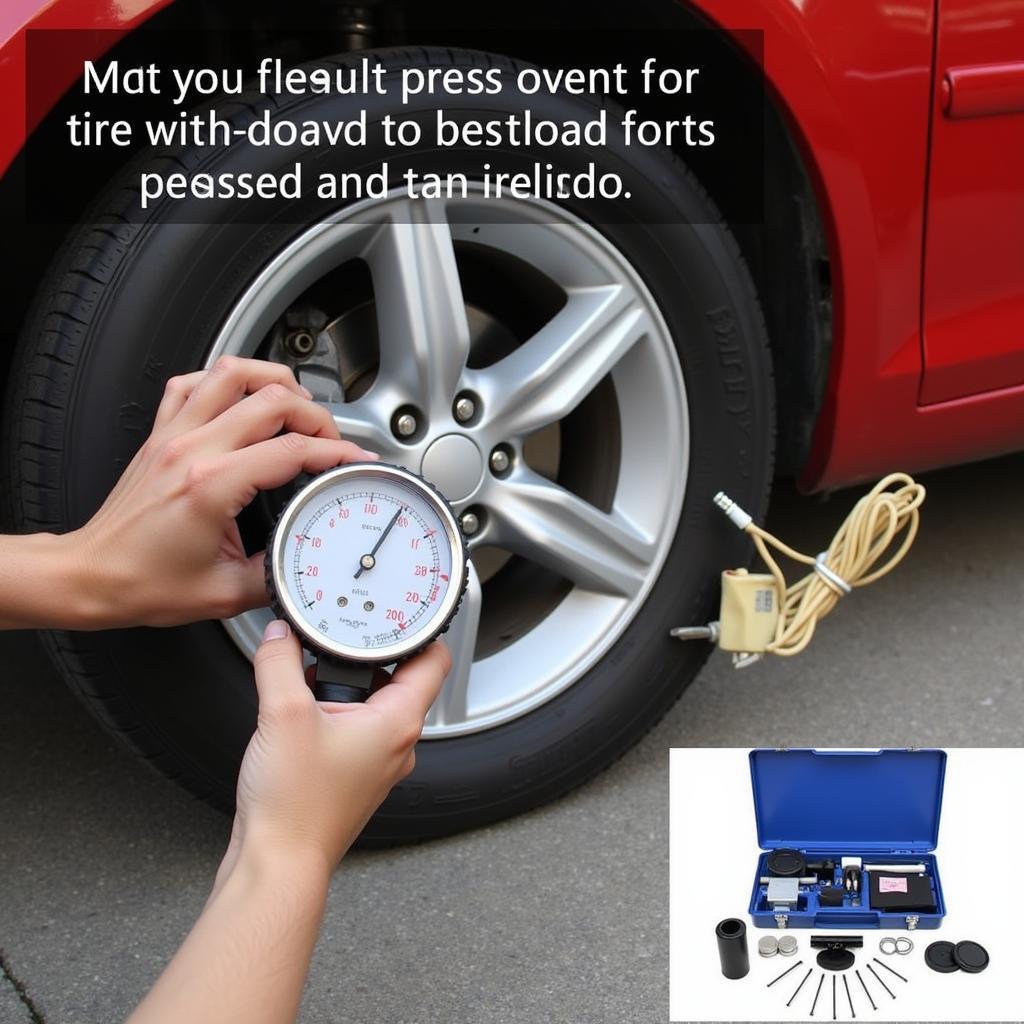A swollen car battery is a common problem that can leave you stranded. It occurs when the battery’s internal components expand due to excessive pressure, often caused by overcharging or extreme temperatures. But don’t worry; fixing a swollen car battery doesn’t have to be a daunting task.
This article will guide you through the causes, signs, and potential solutions for a swollen car battery, ensuring you’re equipped to handle this issue effectively. We’ll also discuss when it’s best to seek professional help from a qualified mechanic.
What Causes a Car Battery to Swell?
A swollen car battery is a sign of internal damage, typically arising from one of the following issues:
- Overcharging: The most common culprit is overcharging. When the battery is exposed to excessive voltage, it can cause the electrolyte to boil and release hydrogen gas. This gas builds up pressure inside the battery, leading to swelling.
- Extreme Temperatures: Both very hot and very cold temperatures can contribute to battery swelling. Heat can cause the electrolyte to evaporate, increasing internal pressure. Cold weather can also damage the battery’s internal structure and lead to swelling.
- Age and Wear: As a battery ages, its components weaken and become more susceptible to internal pressure. This makes it more likely to swell, especially under stressful conditions.
How to Identify a Swollen Car Battery
Recognizing a swollen car battery early is crucial to prevent further damage and potential safety hazards. Here are some telltale signs:
- Bulging Case: Look for a noticeable bulge or distention in the battery’s casing. This is a clear indicator of internal pressure buildup.
- Leaking Electrolyte: If the battery case has cracks or leaks, the electrolyte may leak out, leaving a white, crusty residue on the battery terminals or surrounding area.
- Unusual Odor: A pungent, sulfurous odor emanating from the battery can also indicate swelling and electrolyte leakage.
- Battery Performance Issues: A swollen battery may exhibit reduced cranking power, slow start-up, or inconsistent performance, ultimately impacting your vehicle’s overall functionality.
Can You Fix a Swollen Car Battery?
Unfortunately, you cannot fix a swollen car battery. Once a battery is swollen, the internal damage is irreversible. The pressure buildup can weaken the battery’s internal structure and lead to electrolyte leakage, posing a safety risk.
“A swollen battery is a red flag that the battery has reached its end of life,” says John Smith, a certified automotive technician with over 20 years of experience. “Attempting to fix it yourself could be dangerous and ultimately won’t solve the underlying problem.”
What to Do with a Swollen Car Battery
If you suspect your car battery is swollen, it’s crucial to take immediate action:
- Disconnect the battery terminals: Start by disconnecting the negative terminal first, followed by the positive terminal. This prevents any potential electrical hazards.
- Avoid attempting repairs: Do not try to repair the battery yourself. A swollen battery can release hazardous fumes and corrosives.
- Remove the battery safely: Transport the battery to a safe location away from flammable materials. Securely cover the battery terminals with tape or protective caps.
- Contact a mechanic: Call a trusted mechanic to dispose of the swollen battery properly. Mechanics are trained to handle such batteries safely and can also help you choose the right replacement battery.
How to Prevent Battery Swelling
While you can’t always prevent battery swelling, there are preventive measures you can take to prolong your battery’s life:
- Regular Battery Maintenance: Check the battery’s water levels regularly and top them off with distilled water if needed. Make sure the terminals are clean and free from corrosion.
- Proper Charging: Avoid overcharging the battery. Use a battery charger designed for your car and follow the manufacturer’s instructions carefully.
- Park in Cool Environments: Whenever possible, park your car in shaded areas or garages to avoid excessive heat.
- Avoid Extreme Temperatures: During extreme cold weather, it’s best to use a battery warmer or keep the car in a heated garage.
- Replace Aging Batteries: If your battery is getting old, consider replacing it before it reaches its end of life.
Frequently Asked Questions about Swollen Car Batteries
Q: Can I jump-start a swollen car battery?
A: It is not recommended to jump-start a swollen car battery. The battery’s internal damage can lead to unpredictable reactions, potentially causing a spark or explosion.
Q: How do I dispose of a swollen car battery?
A: Contact your local recycling center or automotive repair shop. They are equipped to dispose of batteries safely and environmentally responsibly.
Q: Can I use a swollen battery for other purposes?
A: No, a swollen battery is unsafe and should never be used for any purpose. The internal pressure and potential electrolyte leakage pose a significant safety hazard.
Q: How much does it cost to replace a car battery?
A: The cost of a replacement battery can vary depending on the size, type, and brand. You can expect to pay between $50 and $200 for a new battery.
Need help with your car battery? Call Autotippro today!
At AutoTipPro, we understand the inconvenience of car battery issues. We offer prompt and reliable battery replacement services to get you back on the road quickly.
Contact us at +1 (641) 206-8880 or visit our office at 500 N St Mary’s St, San Antonio, TX 78205, United States.
We are dedicated to providing you with the expert advice and services you need to keep your car running smoothly.





Leave a Reply